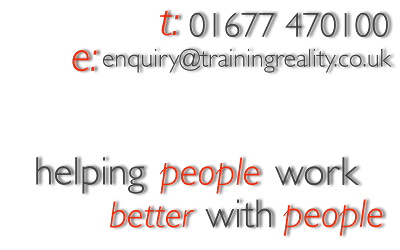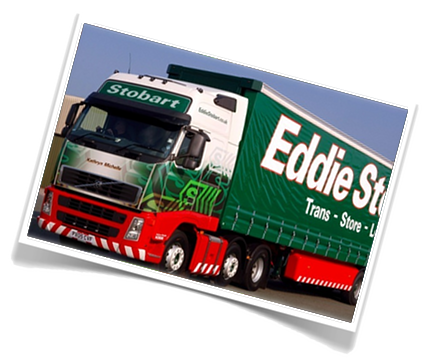Please press (at least!) one of these.
It costs you nothing, and (possibly) helps us spread the word!
Authentic Communication
Thursday, 22 October 2009
When training communication skills, regardless of who is doing the training, a lot of similar material is covered (as long as the trainer is half-awake). Training in communication tends to cover voice tonality and modulation, body language, the words used, props (visual aids and so on), eye contact, interaction with the audience, understanding your audience, and so on. We buy into all of these and more, as tips and techniques, but I was reminded this morning of the single biggest driver of great communication - being authentic.
Listening to the Today programme on the way to a session with a client, I heard Adam Shaw interviewing the COO of Eddie Stobart about his company’s results, and the interview was such a stark contrast to the majority of interviewees (especially the most groomed politicians) that it stuck clearly in my mind.
The groomed politicians you hear on Today, and other media outlets, have usually had plenty of training, plenty of resource thrown at them to assist their communication, and vast support in developing their answers, opinions and themes. If the basic content of a lot of communication training workshops is correct, we really should be eating out of their hands. I would hazard a guess that we’re not though...so clearly the tips, techniques and styles they use are not enough to truly engage me.
So then William Stobart came on the radio. I will confess that I initially thought I’d lost a little reception, as their was a pause in his answer to the first question, but, as the interview developed, it was clear that he had a stammer, stutter, or some form of hesitant speech (apologies for any inaccurate use of terminology - it’s not an area I profess to be an expert in). This is something relatively rare to hear on the radio in itself, and certainly something that some people, and some training organisations, would try and iron out.
I, however, was delighted that it hadn’t been ironed out. William Stobart (despite, or perhaps, in part because of, this factor) came across as a deeply honest, trustworthy, straightforward man who loves his business, his industry, and is happy to openly share his personally held views with a wider audience, without hiding behind weasel words, bland statements, or carefully constructed non-communication.
The simple reason that I was so impressed was not his ability to deal with a stutter - it was the authenticity with which he communicated. Authenticity cannot be trained, as such, but what we work on is training that develops communication skills without removing the character, the personality, and the authentic nature of an individual. Whatever each of our own personal styles are, we can all improve, and improve dramatically in many cases, but I personally resist (and encourage delegates on out courses to resist) any attempts to turn them into clones of the highly groomed, PR trained politicians we hear so much from and believe so little about.
Being yourself, being authentic, might not be the quickest route to success, the speediest way to climb the greasy corporate pole, or the smoothest journey to the top. But I firmly believe that by being authentic, you stand a great chance of getting to where you want to be, and, most importantly, staying there once you’ve arrived.
Please press (at least!) one of these.
It costs you nothing, and (possibly) helps us spread the word!





